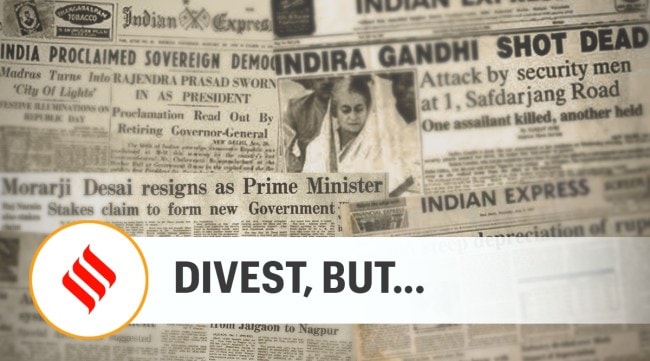Opinion IIker Ayci’s decision to rescind offer to lead Air India throws light on interference, sends wrong signals about road to reform
The manner in which this episode has played out does not send out the right signals about either the reforms push or the country’s business atmosphere.
 Air India is not a public sector entity anymore. Its new owners are well within their right to hire anyone they wish to, subject to the rules and regulations of the land.
Air India is not a public sector entity anymore. Its new owners are well within their right to hire anyone they wish to, subject to the rules and regulations of the land. In January, Air India was handed over to the Tatas, after the group emerged as the highest bidder for the beleaguered airline. On February 14, the Tata group announced the appointment of Ilker Ayci, who had earlier been the chairman of Turkish Airlines, as Air India’s new chief executive office and managing director. However, on Tuesday, a few weeks after his appointment, Ayci declined the offer to lead the airline, noting attempts by some to stain his appointment “with undesirable colours”. The Tatas have reportedly begun the process of selecting another CEO. However, the manner in which this episode has played out does not send out the right signals about either the reforms push or the country’s business atmosphere.
Air India is not a public sector entity anymore. Its new owners are well within their right to hire anyone they wish to, subject to the rules and regulations of the land. Ayci, who was at the helm of Turkish Airlines for nearly seven years from 2015, was to assume his new charge next month. While his appointment was subject to regulatory approvals, which also includes security clearance by the Ministry of Home Affairs, the Tatas are believed to have sounded out senior officials in the government. As reported in this paper, the announcement was made “after an understanding that the selection would go through the required regulatory approvals”. Perhaps what was not anticipated was the social media backlash and its implications — the RSS-affiliated Swadeshi Jagran Manch reportedly raised reservations over Ayci’s alleged links with Turkey’s President Recep Tayyip Erdogan. Ayci’s decision to decline Tata’s offer thus seems to have been prompted by apprehensions that it may be difficult to effectively discharge his duties in such a milieu.
It’s troubling that groups perceived to be close to the present dispensation at the Centre constrict the decision-making process of private entities in choosing the best talent. This raises questions about the future disinvestment of public sector entities. It’s nobody’s claim that due procedures should be short-circuited. But interference by non-government entities, such as what happened in Ayci’s case, is uncalled for. Ayci has a solid international reputation in the aviation sector, if there were questions about his antecedents, how effectively were they raised or addressed? In a globalised world, where talent moves across borders, a company’s decision to make appointments should be about choosing the best person for the job from a pool of international applicants. Indeed, this is what has enabled Indians to helm transnational companies — their list in Silicon Valley’s leadership is a powerful, illustrative example. If erstwhile public sector entities, even after disinvestment, are not able to make decisions without encumbrances, the implications are worrying. Promoting a genuinely healthy business ecosystem via disinvestment is about removing certain regulations — both in letter and spirit.
This editorial first appeared in the print edition on March 3, 2022 under the title ‘Divest, but…’






